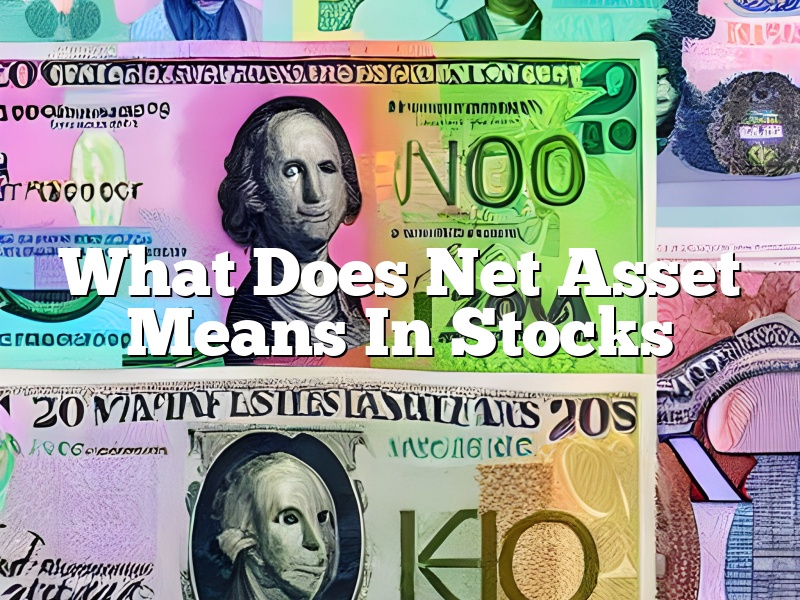Net asset is the market value of a company’s equity minus the company’s liabilities. Equity is made up of the company’s common stock, preferred stock, and retained earnings. To calculate the company’s net asset, you would simply subtract the company’s liabilities from its equity. The calculation of a company’s net asset is important because it […]
What Is Market Value In Stocks
When you invest in the stock market, you’re buying a piece of a company. The price you pay for a stock is the market value. The market value is determined by a number of factors, including the company’s earnings, dividends, and assets. It can also be affected by things like the overall stock market and […]
What Does Dilution Mean In Stocks
In the investment world, dilution is the decrease in the percentage of a company’s ownership interest attributable to each outstanding share of common stock. This decrease can occur when a company issues new shares of common stock, or when preferred shareholders convert their shares into common stock. When a company issues new shares of common […]
How Many Stocks Are There In The Us
How Many Stocks Are There In The Us There are over 7,000 stocks traded on US exchanges. This number changes on a daily basis as stocks are added and removed from the exchanges. The number of stocks listed on US exchanges has grown significantly over the years. In 1990, there were only 2,600 stocks listed […]
What Does Market Value Mean In Stocks
The market value of a stock is the price at which it is currently trading on the open market. It is determined by supply and demand for the stock, and can change throughout the day. The market value is important because it is used to calculate things like the price-to-earnings ratio and the price-to-book ratio. […]
What Is Nav In Stocks
What Is Nav In Stocks? The net asset value (NAV) is the market value of a company’s assets minus the company’s liabilities. The NAV is computed on a per-share basis. It is used to measure the performance of a mutual fund, and it is also used as a benchmark for the price of a security. […]


















0